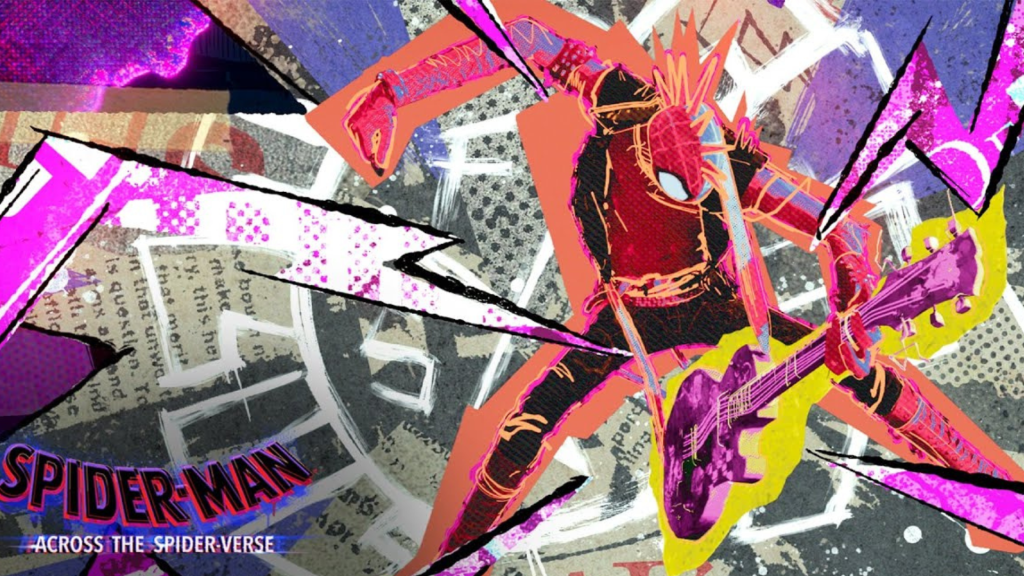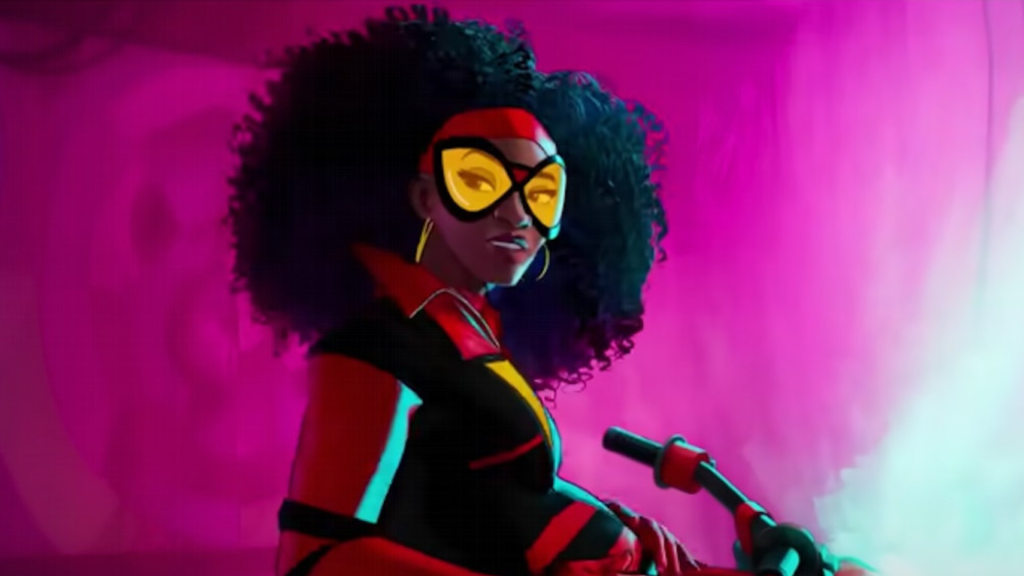In a year when Beyoncé embarked on a record-breaking world tour …
Britain crowned its first new monarch in 70 years and Rihanna emerged from her pseudo-retirement to headline the Super Bowl, Spider-Man: Across the Spider-Verse ranked as the most highly-anticipated event of the year and it wasn’t even close.
It would be easy to point the fingers of blame for these lofty expectations at the Sony marketing machine, but in actual fact, the blame lies at Spidey’s own doorstep. 2018’s Into the Spider-Verse was a genre bending, world-colliding game changer that has come to redefine animation as we know it. Across the Spider-Verse doubles down on the same visual flair and bets big on the irresistible charm of its leading man Miles Morales (Shameik Moore), and oh what a pay off.

It’s been a year since our favourite web-slinger (sorry Tom Holland) took on the mantle of becoming New York’s sole saviour. How’s he handling the pressure, you ask? To be honest, quite well. Prime time TV hosting gigs, legions of adoring fans and of course, the obligatory regrettable brand endorsement – think Kim Kardashian’s campaign for Charmin toilet paper. But what value does being there for the world hold when you can’t be there for the ones you love the most? Confronting this strenuous reality has proved to be our protagonist’s most challenging foe; often rearing its ugly head to scupper Miles’ attempts to build an honest relationship with his loving parents.
Even across a multiverse of endless spider-people, being Spider-Man is a lonely existence. It just so happens that Gwen Stacey (Hailee Steinfeld) AKA Spider-Gwen – the only person he can truly relate to – lives in another dimension and she doesn’t have the answers either. Not only is she distant from her father, he’s actively in pursuit of her for the alleged murder of her best friend. Naturally, this leaves the young crime fighter with no choice but to run away from home and join a collective of inter-dimensional spider-people. Gwen’s Earth-65 makes for one of the film’s most compelling artistic highlights, with the colour palette of each frame ebbing and flowing at will to reflect her crumbling emotional state. it’s the immersive water paint experience that you never knew you needed but won’t forget.
The two kindred spirits are brought together once more when Gwen sets aside a day to go web-slinging through the bustling streets of Brooklyn. Their endearing will-they-won’t-they love story is easy to root for, even though Gwen’s multi-versal exploits have left her convinced that any attempts at romance would be destined for failure. This willingness (or lack thereof) to accept tragedy as an inevitable part of every Spider-person’s journey forms the intriguing base of the film’s core tension (undoubtedly taking its cue from director Kemp Powers’ work on Disney Pixar’s Soul).
While the likes of Venom, Kingpin and Green Goblin have been etched into Spider-Man villainy lore, The Spot (Jason Schwartzman) makes for a peculiar choice of adversary. Upon first meeting, he’s clumsy, insecure and offers about as much menace as a paper airplane in the rain, but quickly escalates to an existential threat capable of tearing apart the whole multiverse. Whereas Marvel has seemingly used the multiverse as a convenient plot device to reset the status quo and protect its more lucrative superheroes, the writing trio of Phil Lord, Christopher Miller and Dave Callaham refreshingly use the same premise to up the stakes and pull infinite worlds into a web of total annihilation.

Late creator Stan Lee’s wish that ‘any kid could imagine they’re Spider-Man’ is realised more so than ever before. We have Daniel Kaluuya’s comically woke Spider-Punk, Issa Rae’s badass pregnant Spider-Woman variant Jessica Drew and a perfectly chiselled Indian Spider-Man (Karan Soni), each providing their own brand of whitty one-liners (including a hilarious observation about the West’s consumption of ‘Chai Tea’). With that being said, composer Daniel Pemberton’s score is every bit as impactful as any of the film’s many memorable characters. Music isn’t only complimentary to the film’s narrative, it dictates it; effortlessly tapping into everything from smooth 90s Hip Hop to abrasive electronic synths to bring each world to life.
Unapologetically heavy-handed with its stylistic approach, Across the Spider-Verse is a beautifully crafted love letter to every era of Spider-Man’s meaningful history. But for all of its sublime visual acrobatics, it’s the emotional authenticity of its characters and sincerity of its storytelling that will keep us all hanging off a cliff with Spidey until his return for 2024’s Beyond the Spider-Verse.
Spider Man: Across The Spider-Verse is in cinemas now!
